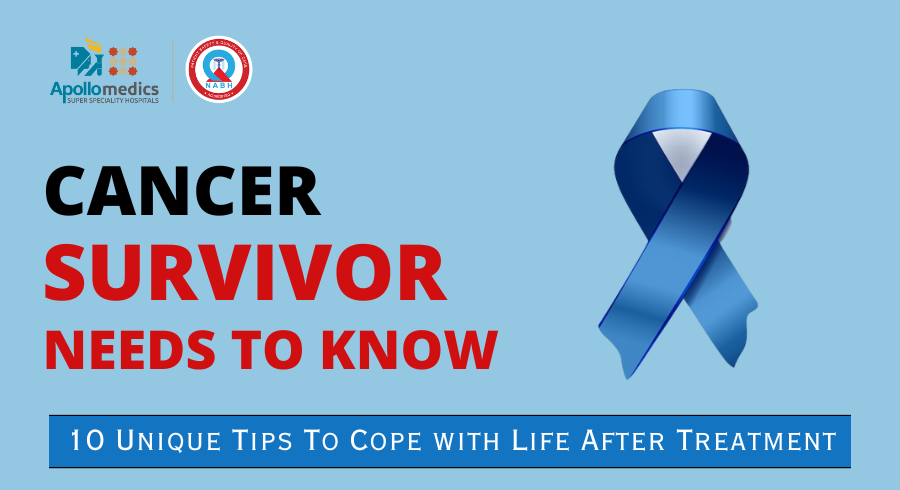Written By – Dr Sathish Kumar Anandan
Cancer survivors are the epitome of resilience. A cancer survivor is an individual, who fought with cancer physically and mentally, and as a result, is now living with or beyond cancer. Post-cancer treatment is the most under-recognized phase for any survivors. Most survivors find themselves lost in limbo after treatment, unsure of how to emerge from this existential vacuum. They may not know how to recover their lost personal life, social life and sometimes even their marital life.
Here is the list of insights that any cancer survivor or family member dealing with cancer survivor must know to cope with this mundane time.
Cancer Survivorship more explicitly focuses on distinct phases of cancer care, following active cancer-directed treatment. It exclusively focuses on enhancing the quality of life. It addresses the physical, emotional, and psychological needs of cancer survivors.
- 1. Monitor long-term Health: Long-term and late side effects of chemotherapy, radiotherapy and surgery do exist. Survivors should regularly monitor any late effects, allowing for early detection and intervention
- 2. Emotional and psychological support: Survivors often experience a range of emotions, including fear of recurrence, anxiety, depression and post-traumatic stress. Access to mental health professionals and counsellors, helps them cope with these emotional challenges.
- 3. Encourage self-advocacy: Speak up for yourself. Let the cancer survivors explain their problems and their needs to healthcare professionals. It teaches them to communicate effectively and boosts their self-confidence. More importantly, this seals off unknown gaps in treatment due to miscommunication.
- 4. Relationship support: Proper counselling to spouse and other family members, helps them understand the needs of cancer survivors better. Ultimately, mental support is what cancer survivors seek.
- 5. Birds of a feather flock together: Sailing in the same boat is always comforting. There are many cancer support groups created by cancer survivors are available online. Joining these groups and discussing the cancer journey with similar cancer survivors promotes a positive outlook on the world and gives tremendous hope.
- 6. Occupational rehabilitation: Work is the best stress buster. When a person is physically occupied, they tend to forget the past, present and future. Work creates a routine and gives the survivors a reason to wake up in the morning.
- 7. Promote a healthy lifestyle: Developing knowledge regarding nutrition, exercise and completion cessation of smoking and alcohol, all contribute to a better quality of life and decrease the rate of recurrence.
- 8. Collaborate with support groups: Various NGOs and other social groups provide support including financial, occupational, psychological etc.,
- 9. Adjustment issues: Cancer and its treatment lead to some sort of change in body image and self-identity. Loss of body image questions one’s self-identity. Psychological support and collaboration with cancer support groups can help individuals navigate this crisis.
- 10. Survivor’s guilt: Some survivors may experience guilt about surviving when others with similar diagnoses did not. Developing effective coping strategies is the key.
Final Words:
Cancer survivorship is a unique and individual journey. Not all survivors will face the same challenges. Cancer survivorship programs are essential and they emphasize life after cancer treatment is a new chapter filled with opportunities for growth and well-being.



